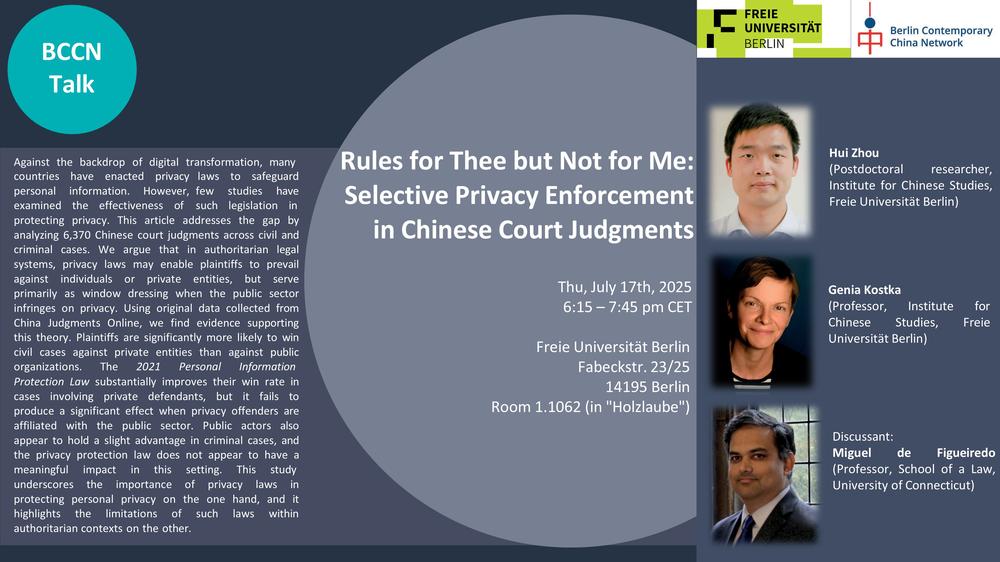BCCN Talk: Rules for Thee but Not for Me: Selective Privacy Enforcement in Chinese Court Judgments
Abstract:
Against the backdrop of digital transformation, many countries have enacted privacy laws to safeguard personal information. However, few studies have examined the effectiveness of such legislation in protecting privacy. This article addresses the gap by analyzing 6,370 Chinese court judgments across civil and criminal cases. We argue that in authoritarian legal systems, privacy laws may enable plaintiffs to prevail against individuals or private entities, but serve primarily as window dressing when the public sector infringes on privacy. Using original data collected from China Judgments Online, we find evidence supporting this theory. Plaintiffs are significantly more likely to win civil cases against private entities than against public organizations. The 2021 Personal Information Protection Law substantially improves their win rate in cases involving private defendants, but it fails to produce a significant effect when privacy offenders are affiliated with the public sector. Public actors also appear to hold a slight advantage in criminal cases, and the privacy protection law does not appear to have a meaningful impact in this setting. This study underscores the importance of privacy laws in protecting personal privacy on the one hand, and it highlights the limitations of such laws within authoritarian contexts on the other.
Hui Zhou is postdoctoral researcher in the "Privacy China" project at the Institute for Chinese Studies, Freie Universität Berlin. He graduated with a PhD in Political Science from University of Houston and worked as an Assistant Professor at Saint Louis University before joining Freie Universität Berlin. His research interests include Privacy, Digital Governance, Crisis Management, Dispute Resolution, and Distributive Politics.
Genia Kostka is Professor of Chinese Politics at the Freie Universität Berlin. Her research focuses on digital transformation, local governance, and environmental politics. She is particularly interested in how digital technologies are integrated into local decision-making and governance structures in China.
Miguel de Figueiredo is a professor at the University of Connecticut School of a Law. His research is broadly focused on accountability and compliance in challenging institutional and behavioral settings. His writing and teaching focuses on the areas of criminal law, law and development, corruption, voting behavior, election law, and judicial behavior. Professor de Figueiredo received a JD from Yale Law School and a Ph.D. in political science from the University of California, Berkeley.
Zeit & Ort
17.07.2025 | 18:15 - 19:45
Freie Universität Berlin, Fabeckstr. 23/25, 14195 Berlin, Room 1.1062 (in "Holzlaube")



